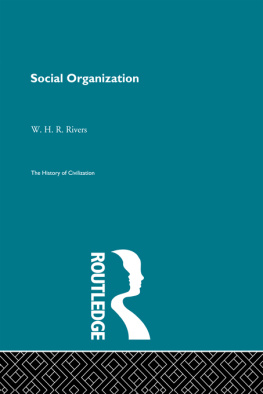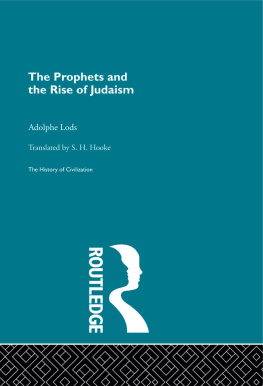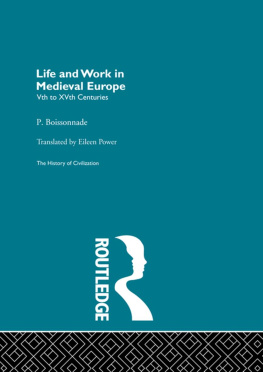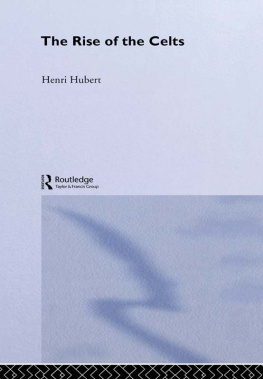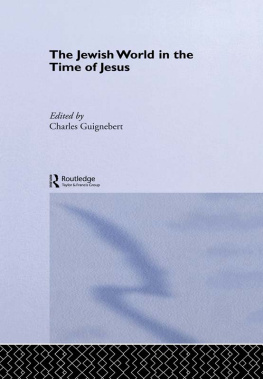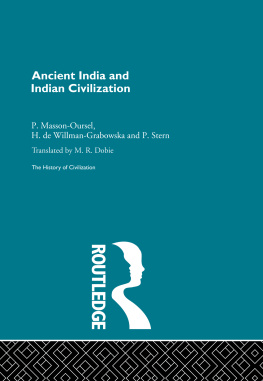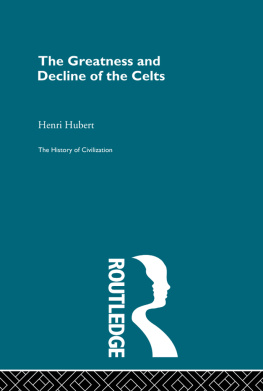THE HISTORY OF CIVILIZATION
ROME THE LAW-GIVER
THE HISTORY OF CIVILIZATION
General Editor C. K. Ogden
The History of Civilization is a landmark in early twentieth Century publishing. The aim of the general editor, C. K. Ogden, was to "summarise in one comprehensive synthesis the most recent findings and theories of historians, anthropologists, archaeologists, sociologists and all conscientious students of civilization." The History, which includes titles in the French series L'Evolution de I'Humanit, was published at a formative time in the development of the social sciences, and during a period of significant historical discoveries.
A list of the titles in the series can be found at the end of this book.
First published in 1927 by Routledge, Trench, Trubner
Reprinted 1996, 2000
by Routledge
2 Park Square, Milton Park,
Abingdon, Oxon, OX14 4RN
&
270 Madison Ave,
New York NY 10016
Transferred to Digital Printing 2008
Routledge is an imprint of the Taylor & Francis Group
1996 Routledge
All rights reserved. No part of this book may be reprinted or utilized in any form or by any means electronic, mechanical, or other means, now known or hereafter invented, including photocopying and recording, in any information storage or retrieval system, without permission in writing from the publishers.
British Cataloguing in Publication Data
ISBN: 0-415-15581-9
ISBN Roman Civilization (6 volume set): 0-415-15613-0
ISBN History of Civilization (50 volume set): 0-415-14380-2
Publishers Note
The publisher has gone to great lengths to ensure the quality of this reprint but points out that some imperfections in the original may be apparent.
Foreword
Rome as Organizer
The Invention of Law
IN the prejace to La Pense grecque et les origines de I'Esprit scientifique, we felt justified, in making the following remark: " no universal history exists where the history of ideas has the place that it will hold in this work or has been made so essentially apart of it." At the beginning of this volume we can say as much as regards Law which, if it is a product of social life, is at any rate ultimately associated with the history of ideas.
To devote a whole volume in the series to Roman Law is in strict accord with the nature of things. We need not insist here on the part played by Rome as organizer of human society in general , on what may be called quite literally the Roman " miracle see the preface to vol. xvi. It is the activity of Rome as conscious originator of Law that we must emphasize, that the present volume tries to make clear, as she elaborates its details a?id makes its general principles stand out in the full light of reflexion.
We know that, as societies become organized, the politico-juridic function which, with the economic function, meets the needs of the group considered as such and forms the strictly social factor in history gradually breaks up into various institutions. " Custom " is the undeveloped, or little developed, seed of all juridic development;
While we recognize the specific character of Law, which is properly social, we believe that from the very beginning the individual has had some influence in this sphere. If all individuals are elements of society, they are not all so to the same degree; there are some who feel the social needs more keenly than the rest , and these are society's agents.
The part played by individual initiative will be clearly shown in this volume. Law by which public authority first establishes custom and then adds to it was at Rome formulated, adapted, corrected, extended, interpreted by the magistrates and by the jurists. These latter " organized and classified the means by which every legal problem could be brought to a solution which should at the same time satisfy the mind and the sense of equity they " raised a structure which later centuries were to regard as a sort of written reason " (p. 26). This structure was enlarged and adapted for the use of foreigners, and thus the idea of a " jus gentium " appeared. " For the first time the conception of a universal reason arose, not in the books of the philosophers, but in the actual body of Roman jurisprudence " (v. 29 # cf. 31),
Nothing of this sort had really been seen in Greece; for if the Greeks created art and speculation, the jurist in their cities " was not distinguished from the philosopher or the statesman " (p. 10).
The Romans achieved their legal work slowly and empirically, and yet it has a logical basis that never loses its validity. They have created " a body or, more accurately, several bodies of doctrine and of rational forms for almost all the situations and for many aspect's of social life " (p. 4; cf. 6 and 879-80); and " to the work accomplished during a particular period at a particular point on the earth's surface whole centuries and , within those centuries, millions of human beings have been indebted " (p. 1). That is the glory of the Roman genius and its chief legacy to posterity.
The sources and the formation of Roman Law; its evolution; the establishment of a public order where greater independence is gradually allowed to the individual, but where the rights of the individual are reconciled with the various social interests; then, later on, the loss of equilibrium owing to exaggerated individualism on the one hand and the establishment of State Socialism on the other: all this is luminously set forth in the following volume.
J. Declareuil possesses in the highest degree the historical spirit which animates Romanists to-day and involves that critical sagacity, that philological mastery, of which Frenchmen like Cujas, Antoine Favre and Jacques Godefroy first set the example. Sound learning , important personal researches and a very wide knowledge of the literature of the subject lie at the foundation of this book, where, without the dryness of a severe treatise, the results acquired are presented in vigorous epitome.
The synopsis of Roman Law contained in the present volume is, at the same time, an appropriate element in our general Synopsis. J. Declareuil has taken very great care to connect Roman Law with the general course of legal, sociological and historical evolution; and his endeavour will undoubtedly be. appreciated, being as it is the work of a jurist who unites unbounded historical curiosity with the interests of the specialist and the qualifications of the expert, and addresses himself to all historians, to all devotees of history in the widest sense of the word.


